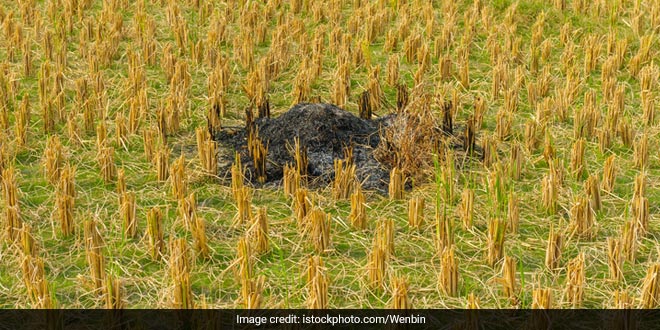Highlights
- Air condition of Delhi-NCR reached poor, very poor category on October 13
- Delhi-NCR is experiencing north-westerly winds for the last few days
- Winds bought smoke of stubble burning towards Delhi-NCR: IMD
New Delhi: With pollutants level of PM10 and PM 2.5 exacerbating to 265 and 129, the air condition of Delhi/NCR plummeted to the poor and very poor category on Tuesday (October 13). India Meteorological Department’s Delhi wing observed that significant trimming in stubble burning along with the change in wind direction can improve the situation. Also, the key role of local, industrial and construction site pollutants adds to the worsening air condition. Kuldeep Srivastava, head of IMD’s regional weather forecasting centre told ANI,
Three factors are involved for deteriorating Air Quality. The stubble burning in Punjab and Haryana and the local pollutant and pollutants generated by industry or construction sites. Winds bought smoke of stubble burning towards Delhi/NCR. Change in wind direction and significant reduction of stubble burning will help in improving air quality.
Also Read: Delhi Gets ‘Green War Room’ To Fight Pollution This Winter
Delhi/NCR is experiencing north-westerly winds that are prevailing over the last few days.
Since the last two days, wind speed has decreased incapacitating pollutants to disperse away. Wind direction has changed to easterly today. Accumulation of pollutants has deteriorated the air condition, observed Mr Srivastava.
Amidst increasing levels of air pollution in the national capital region, close to 700 cases of stubble burning were reported from Punjab and Haryana between September 21-29.
Over a period of nine days, Active Fire Events (AFE) registered in Punjab and Haryana this year is 579 and 120 against a much-lowered number of 208 and 27 last year.
The Environment Pollution (Prevention & Control) Authority (EPCA) issued a letter to Chief Secretaries of Delhi, Uttar Pradesh, Haryana, and Rajasthan last week on the implementation of the Graded Response Action Plan (GRAP) in an endeavour to keep air pollution at its lowest.
The temperature will vary between 20/21 centigrade in Delhi/ NCR for few days before decreasing further. The upcoming decrease in temperature will lead to unfavourable air quality. In the coming days, conditions are not that favourable, told Mr Srivastava.
Also Read: Delhi Government To Spray Bio-Decomposer In Fields From October 11 To Prevent Stubble Burning
Winter mostly depends on western disturbance. When western disturbance approaches northwest India, winter begins. In the coming 10 days, there will be no active western disturbance which will affect northwest India.
An AQI between 0 and 50 is considered ‘good’, 51 and 100 ‘satisfactory’, 101 and 200 ‘moderate’, 201 and 300 ‘poor’, 301 and 400 ‘very poor’, and 401 and 500 ‘severe’.
Also Read: Gurugram, Faridabad To Have Pollution Control Rooms Functioning Round The Clock
(Except for the headline, this story has not been edited by NDTV staff and is published from a syndicated feed.)
NDTV – Dettol Banega Swasth India campaign is an extension of the five-year-old Banega Swachh India initiative helmed by Campaign Ambassador Amitabh Bachchan. It aims to spread awareness about critical health issues facing the country. In wake of the current COVID-19 pandemic, the need for WASH (Water, Sanitation and Hygiene) is reaffirmed as handwashing is one of the ways to prevent Coronavirus infection and other diseases. The campaign highlights the importance of nutrition and healthcare for women and children to prevent maternal and child mortality, fight malnutrition, stunting, wasting, anaemia and disease prevention through vaccines. Importance of programmes like Public Distribution System (PDS), Mid-day Meal Scheme, POSHAN Abhiyan and the role of Aganwadis and ASHA workers are also covered. Only a Swachh or clean India where toilets are used and open defecation free (ODF) status achieved as part of the Swachh Bharat Abhiyan launched by Prime Minister Narendra Modi in 2014, can eradicate diseases like diahorrea and become a Swasth or healthy India. The campaign will continue to cover issues like air pollution, waste management, plastic ban, manual scavenging and sanitation workers and menstrual hygiene.
[corona_data_new]






























